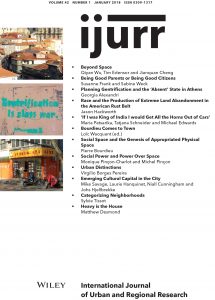In recent years, cities have become ever more attractive to middle-class families. On the one hand, middle-class families tend to withdraw into (often newly built) socially homogeneous middle-class neighbourhoods. On the other hand, they are also known to move into inner-city and socially mixed areas, thus triggering processes of gentrification. Academic literature has often denounced these housing choices as being either ‘separatist’ or ‘revanchist’, more broadly categorized as strategies of ‘middle-class disaffiliation’. Although there is a grain of truth in these interpretations, the reality is certainly more complicated. In our research on middle-class parents’ housing and neighbourhood choices as well as their patterns of neighbourhood use, carried out in each of the two types of residential area mentioned above, we have only very rarely found an explicit desire to draw boundaries that exclude those ‘beneath’ them. We rather argue that the housing choices and neighbourhood-related activities of middle-class family households are heavily influenced by the specific dilemmas the interviewees face as (working) urban parents. While a significant number of respondents worry about the social sustainability, justice and cohesion of urban society, they are also concerned about the future prospects of their children. Many find it difficult to reconcile these conflicting normative demands under the prevailing circumstances.
Details
Written by:
Susanne Frank & Sabine Weck
Digital Object Identifier (DOI)
10.1111/1468-2427.12592
About DOI

